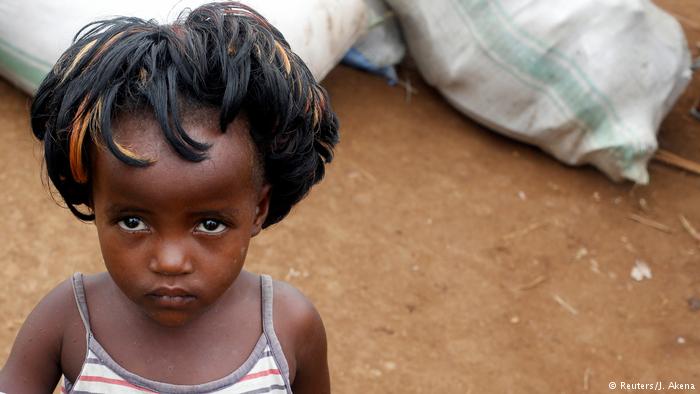Malaysia criminalizes child grooming, not child marriage

Last week, Malaysia considered outlawing child marriage, a contentious issue in the Muslim-majority nation, without success. Instead, an MP said nine-year-old girls are “physically and spiritually ready for marriage.”
Malaysia on Tuesday passed the Sexual Offences against Children Bill 2017, protecting anyone below 18 years of age from sexual abuse, but stopped short of outlawing child marriage.
Besides criminalizing child grooming, the new bill boasts extra-territorial jurisdiction, not only protecting Malaysian children from local and foreign predators, but also making Malaysians liable to prosecution for committing similar offenses abroad.
However, an opposition lawmaker’s proposal to criminalize child marriage – a thorny issue in Muslim-majority Malaysia – was overwhelmingly outvoted.
 Opposing this proposal Shabudin Yahaya, a member of the ruling Barisan Nasional coalition, controversially contended that girls “reach puberty at the age of nine or 12. And at that time, their body is already akin to them being 18 years old. So physically and spiritually, it is not a barrier for the girl to marry.”
Opposing this proposal Shabudin Yahaya, a member of the ruling Barisan Nasional coalition, controversially contended that girls “reach puberty at the age of nine or 12. And at that time, their body is already akin to them being 18 years old. So physically and spiritually, it is not a barrier for the girl to marry.”
Shabudin, a former Shariah (Islamic law) court judge, further incensed Malaysians by arguing that there was “nothing wrong” with a rape victim marrying her rapist as she would then not face a “bleak future.”
Parallel and intersecting laws
In Malaysia, the minimum marriage age is 16 for Muslim girls and 18 for Muslim boys. However, younger girls can marry with permission from their parents and the Shariah courts.
The provision can be exploitative as a Muslim girl can technically be married off upon attaining puberty.
For non-Muslims, the minimum age is 18, but girls as young as 16 can marry if they obtain permission from their state’s chief minister or under the customary laws of the East Malaysian states of Sabah and Sarawak.
Rights groups, including Islamic feminist groups, have been fighting for the minimum marriage age to be set at 18 years regardless of gender and religion, in line with the Child Act 2001 which defines a “child” as a person under 18.
These calls have been made time and again whenever prosecution especially for statutory rape is thwarted after parents or Shariah courts grant permission to both parties to marry. Or whenever lawyers and lawmakers themselves justify such unions based on the “best interest of all parties.”
Backdoor exit for rapists?
In March, a Shariah lawyer suggested that it is best for an underage girl to marry, if she had committed illicit sex and gotten pregnant, as long as both parties consent to marriage.
 Responding to this, the Joint Action Group on Gender Equality, a coalition of Malaysian women’s groups, released a statement saying, “This statement is damaging as it misrepresents the term ‘consent,’ disregards the law on statutory rape and dismisses the reality of power imbalance that exists in cases of underage marriages.
Responding to this, the Joint Action Group on Gender Equality, a coalition of Malaysian women’s groups, released a statement saying, “This statement is damaging as it misrepresents the term ‘consent,’ disregards the law on statutory rape and dismisses the reality of power imbalance that exists in cases of underage marriages.
“Statutory rape in the Penal Code is defined as any sexual activity with a girl under the age of 16, as she is unable to understand the nature and consequence of giving ‘consent.’ We should not mitigate the crime of statutory rape by allowing or encouraging marriage to the perpetrator.”
In 2016, a Sarawak court dismissed charges against a 21-year-old man who was accused of statutory rape of a 14-year-old girl, after the judge was informed that the pair had obtained consent for marriage from a Shariah judge.
Prosecutor Ahmad Fariz Abdul Hamid was quoted then as saying, “Our stand is marriage doesn’t nullify the crime.” Following a public outcry, a higher court ruled that the man should face trial.
Similarly in 2013, a 40-year-old man in Sabah raped a 12-year-old girl and took her as his second wife after bribing her parents. He was later charged and convicted of statutory rape.
The furore caused by his remarks prompted MP Shabudin to later release a statement saying that his comments were taken out of context, and that marriage was not a “backdoor exit to legalize (statutory) rape.” He explained that he rejected the motion to ban child marriages as it contravened Shariah provisions.
Retain shariah court discretion
At a statutory rape forum organized by the women’s wing of the opposition National Trust Party just a day after Shabudin’s headline-grabbing statements, several lawyers maintained that Shariah courts and judges should retain their discretion to allow Muslim child marriages on a case-by-case basis, adding that a mandatory minimum age of marriage at 18 may open the system to abuse.
The Malay Mail reported that the lawyers insisted that there must be stricter regulations on such cases, and marriage should be an answer to statutory rape only in “exceptional circumstances.”
 But women’s rights activists on the panel were skeptical, explaining that Shariah judges sometimes allow marriage applications without knowing the full facts of a case. Shareena Sheriff, program manager with the women’s group Sisters in Islam, said: “Some Shariah judges, they will not even interview the children, but only the parents.”
But women’s rights activists on the panel were skeptical, explaining that Shariah judges sometimes allow marriage applications without knowing the full facts of a case. Shareena Sheriff, program manager with the women’s group Sisters in Islam, said: “Some Shariah judges, they will not even interview the children, but only the parents.”
In a separate interview with The Malay Mail, Musa Awang, president of the Shariah Lawyers Association of Malaysia (PGSM), said that when Shariah courts approve marriages between rape victims and their rapists as well as child marriages, it should be based on “consent,” not “compulsion.” He explained that Islam does not fix a minimum marriage age for Muslims but allows them to marry once they attain puberty and display physical signs of such maturity.
Data on child marriages in Malaysia is limited but previous reports estimate that the country has around 15,000 girls under 19 who are married.
Author: Brenda Haas
_____
WTO RECOMMENDS
Terre des Femmes says, ‘End child marriage!’
Child marriage impedes a girl’s education and fosters violence. It must be eradicated, says Monika Michell from the women’s rights organization Terre des Femmes. (From December 23, 2016)
‘Sonita,’ the Afghan teen who raps to end child marriage
Her family wanted to sell her as a bride. An Iranian film director saved her by breaking the main rule of documentary filmmaking: do not interfere. The story became one of the best documentaries of the year, “Sonita.” (From December 23, 2016)
Is it possible to stop child marriage?
Child marriage is still legal in Indonesia. It sounds provocative and cannot be denied. That it is legal can be seen clearly when the Constitutional Court declined suit against child marriage filed by women and children rights activist in June 2015. (From August 19, 2016)





